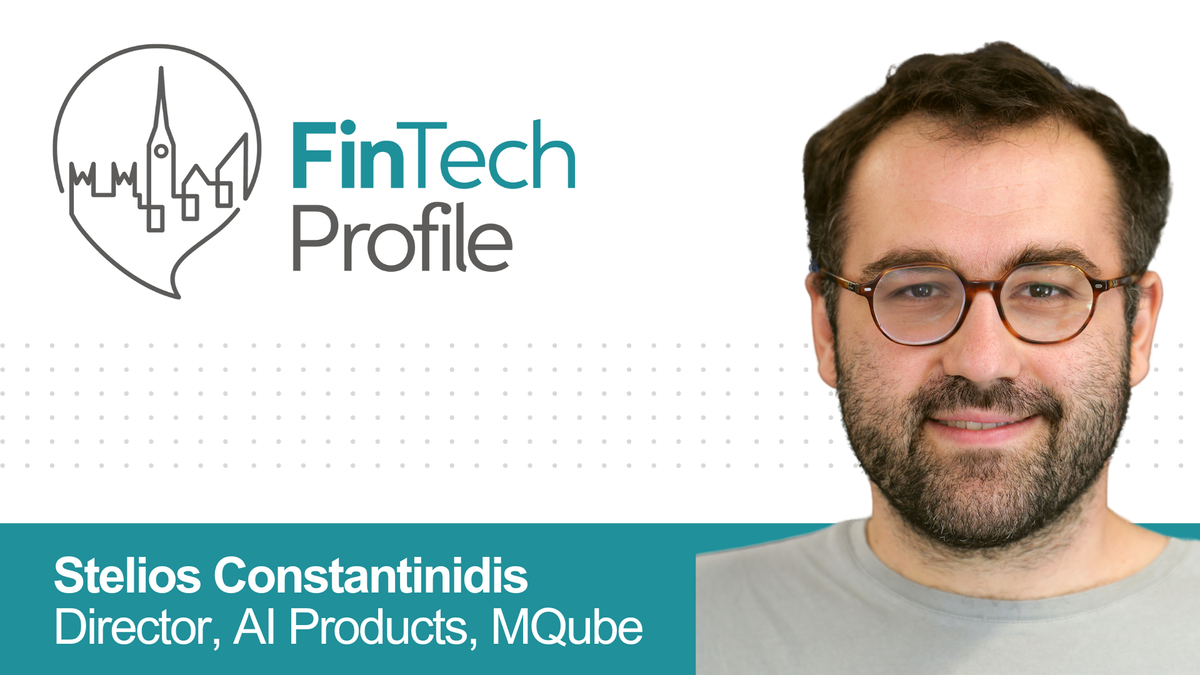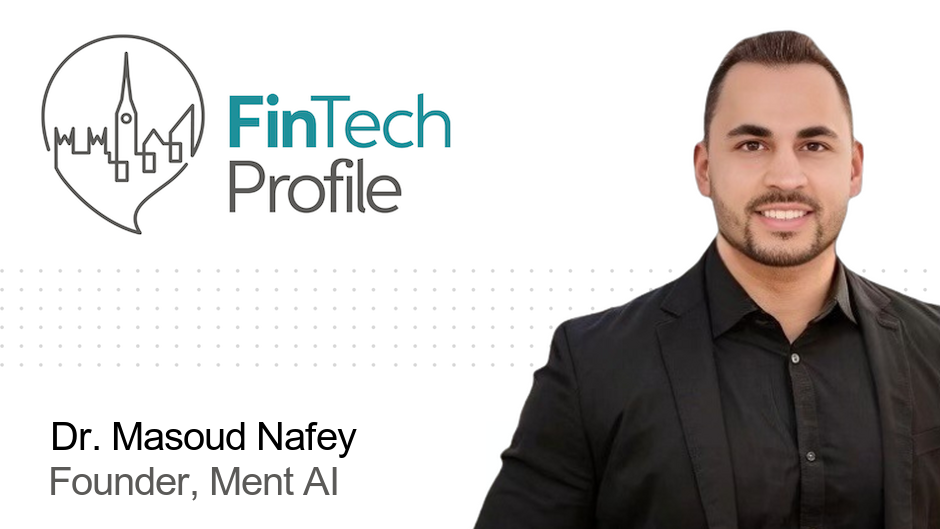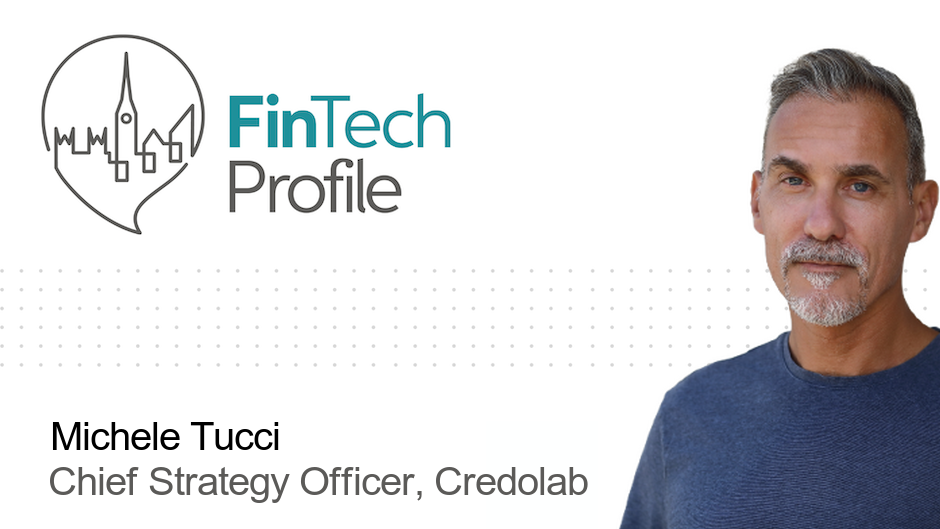Stelios Constantinidis, Director, AI and AI Products, MQube

I recently sat down with Stelios Constantinidis, the Director of AI & AI Products at MQube to find out how they took the average mortgage approval process from around 11 days to about 15 seconds.
Over to you Stelios - my questions are in bold:
Who are you and what's your background?
My background is electrical engineering and computer science, and then I did a Masters in AI, right before the big AI boom. It was on transformers, which are the backbone of LLMs. I graduated six years ago and it has been really interesting seeing how quickly it took off and how quickly AI has changed.
I joined MQube in 2019 as a graduate. It was actually my first role and I was one of the first employees, I think maybe number seven and now MQube is over 10 times that size. I initially found MQube as I was reading papers as a student and I loved the vision of Richard and Stuart, the two founders. I loved the opportunity to implement the papers that I was reading as a student in a real world setting. Within a month of joining MQube, we were already training our own transformer models for financial services.
I started as a data scientist and machine learning engineer and we were training AI transformers on financial documents to build a document extraction pipeline. It was able to extract information from documents like payslips and bank statements. And then I moved from the academic research side to the production side, because we put those models into production very quickly. From 2020 we had language models, not LLMS, but niche, specific, bespoke language models live in production. I got my hands dirty with production problems and deploying models and making sure they can serve at scale in production. As the company scaled, I moved into a Head of Research role and was looking after a team of data scientists which was looking at different applications of AI across the business. Then, for the last year I’ve been in my current role.
What is your job title and what are your general responsibilities?
I'm the Director of AI and AI products. That means that I'm looking at a few different things. One of them is, how can we expand on our AI capabilities with the changes that are happening on an almost weekly basis. I'm always keeping in touch and up to date with new open-source models that come out and new research papers that we want to implement internally. I look after a team of data scientists who work in this domain. Secondly, I look at the commercialisation of our AI capabilities as a standalone product.
Can you give us an overview of your business?
MQube is fundamentally a tech business which uses cutting edge technology and AI to make mortgages faster and simpler. We build the software that enables big banks and mortgage lenders to originate and offer mortgages in, rather than the traditional industry standard of 10 days, in hours.
What's unique about MQube is that there is a sister business, MPowered mortgages, which is a regulated residential mortgage lender. MPowered has been using MQube’s tech for the last four years, which means that the tech, rather than being something that's been built in a lab in, it’s been built right where the problems are. Over the course of the last four years, in a highly regulated environment, the tech and the AI have been iterated on hundreds of thousands of times. You know the 1% rule - that if you make a 1% improvement every day then over the course of a year there is exponential growth. That’s what MPowered and MQube have done.
MQube has built tech that solves real problems and the value of its tech has been fully proven. In the last few months of 2024, 96% of mortgages were offered within a day through MPowered mortgages. When the broker provided all the documents to MPowered mortgages the tech that MQube built was able to use automation and AI to process all the data instantly, with the only human intervention needed to check over the case. Effectively, the mortgage was offered a few minutes or a few hours later.
In fact we have even done fully automated mortgages this year and made a fully automated mortgage offer within 15 seconds - with no human intervention.
Wow! Talk me through the process.
The application data gets uploaded. And then other data sources and APIs are collated to expand on the information. This is where AI comes into place. Effectively tens of thousands of data points are all collated together, for example, PDFs might be scanned, but are low quality so the AI reads, for example, your payslip and understands this number over here is B. And all of this information then goes into a fully auditable system that just runs the lender’s lending policy. The system is able to verify what they've declared on their application is what they're earning, it can see that the property meets the guidelines, they are the right age, they can support the mortgage using affordability calculations. This is obviously oversimplifying it, but it can do all of that within those 15 seconds - thousands of checks, but at the end of the 15 seconds there is a tick, yes, you can get a mortgage. And the system generates a legally binding mortgage offer. Often customers, and even the broker, can’t quite believe that they can get their mortgage offer so quickly.
You must be saving lenders thousands of pounds.
Basically, the operational costs for lenders using MQube’s technology go down by 80%. Part of that is because the operational capacity of the lender scales up about five times. Another reason is that costs go down, and crucially, they're able to serve products at scale. What often happens with mortgage lending is that a lender will reduce their interest rates and then get a massive volume of applications. They'll be flooded. So, AI and automation not only saves money in terms of the operational benefits for a lender, but ultimately, it brings a better consumer outcome by letting the lenders serve lower cost products.
There is actually another hidden cost saving. MPowered Mortgages published a stat recently that said that cash buyers effectively get to save £30,000 on the cost of the house because the seller has the certainty of having a cash buyer which means that they are willing to offer a discount. What MPowered and MQube are doing is to convert every buyer into a cash buyer by providing them instant and certain mortgage offers because the moment you complete your application you get your offer.
How is this being received by the internal users?
We've had the benefit of having our tech deployed in a live setting and that means we can iterate on the tech, not only in terms of the automation, but also how the tech can be used productively and on a behavioral level. There is nearly always resistance towards new tech, but where we're different is that we see this reaction for maybe a week. Because our tech is deployed live in the market with MPowered we can work with the teams using it. For example, we can work with the underwriters to change how the model is served, to change the interface and their experience of using the tech, so that they embrace the technology and go past the resistance.
I think that part of designing new tech is looking not only at what it achieves, but how can you prove to people that they can get the benefit they want, that it actually helps them to do more with less?
What's your business model?
MQube is a tech business and its main product is the origination platform which is a mortgage origination platform that any lender can purchase and effectively do their underwriting on. And the business model is a licensing agreement. The Nottingham Building Society went live with MQube last month and there are more lenders which I can't yet share using the tech. MPowered uses MQube’s technology, but the way it makes money is through an origination fee on mortgages.
Are you thinking about deploying Agentic AI?
We use AI, transformer models and language models to package the information from the case. To convert, for example, PDFs to information. On top of that, because it's a highly regulated industry where interpretability and auditability matters, the decisions are not made by AI, but by crystal clear decision trees. We've been exploring agentic solutions, not to have the agent make a decision but to eliminate some manual workflows. We're exploring workflows that can be automated with agents, but they will not necessarily sit in the decision space.
Are you seeing other benefits from using AI in this way?
I've actually seen people getting value from Gen AI which isn’t in the automation space. One of our products is a chatbot that's trained on the lender’s policies. But as lenders use the chatbot, all of them find that their policies have gaps, which they all find fascinating. When you use an AI chatbot you start measuring the questions that people ask and because this is something you've never measured before you get new results.
That's brilliant. Are you looking to package this up to compliance and risk teams?
This is something that we've been doing already, and we’ve found other issues, such as gaps in the policy, or the wording not being clear or user friendly, or there being duplication. A person would easily skim over these issues, but AI gives you visibility into all of these things.
Is your focus predominantly UK?
Historically we’ve focused in the UK, but we’re already having conversations with institutions in Europe and beyond.
If you had a magic wand, what one thing would you change in the banking and/or FinTech sector?
The first thing that comes to my mind is the larger the institution, the slower the change of movement. Coming from a tech startup where everybody's obsessed about pushing changes to production tens of times a day, this simply doesn't happen in large institutions and the larger they are the worse it is. So if I could, I would change this.
What is your message for the larger players in the Financial Services marketplace?
First of all, I would say that AI is here to stay. It's not something that you cannot have a strategy on, or something you cannot be experimenting with. The second message is to have a sense of urgency about trying out different things. Which, if we’re honest, is something they should have been doing from five years ago. But as they say, the best time to plant a tree is 20 years ago, the second best time is today. So, start experimenting now, because you'll discover things about your organization and how your kind of organisation can adapt to AI, and you'll also discover things about exactly what you want to do with the AI itself.
Where do you get your Financial Services/FinTech industry news from?
I go to the FT, the Economist. I love Matt Levine's column in Bloomberg. There is a new podcast on Y Combinator from Tom Blomfield, the original CEO of Monzo.
For AI news, I'm on Reddit, I’m on X, there are lots of researchers posting their papers. Also, on Hacker News from Y Combinator there are lots of good conversations.
Can you list 3 people you rate from the FinTech and/or Financial Services sector that we should be following on LinkedIn, and why?
- Dr Paul Dongha: Paul has great insights on AI and I have come across loads of interesting papers and studies from his posts.
- Jinesh Vohra: Jinesh Vohra is the founder of Sprive, a really cool app in our space.
- Peter Stimson: Peter is MPowered’s mortgage market guru.
What FinTech services (and/or apps) do you personally use?
- SpriveApp – to help me pay my mortgage faster
- Trading 212 – to invest easily
- Uniswap – to manage my ETH wallet and web3 tokens
- Monzo Bank – for its ease of use
What’s the best new FinTech product or service you’ve seen recently?
I'm seeing lots of new startups working a lot with voice agents. There is one called Kastle (YC S24) Mortgages in the US, it's a small startup and it’s really exciting. So much of the interaction about mortgages and financial services happens through phone calls. So, there is a huge opportunity there, and it's something that we’re building in as well – we just launched a voice agent for criteria questions. Brokers can call the number and get instant answers to any criteria question.
Finally, let's talk predictions. What trends do you think are going to define the next few years in the FinTech sector?
In five- or ten-years’ time the technology that we've developed, the cutting edge technology will be everywhere. So, assuming this is a given I think that what will happen is that banks and lenders will have to invest even more in marketing and even more in their content creation. When the experience is so seamless everywhere and you can get everything just by clicking a button, relationships start to become less important and so the content and the media experience becomes more important. This is based on the fact that AI will be everywhere, I'm taking that as a given.
Absolutely fascinating. Thank you very much Stelios!
You can find out more about Stelios Constantinidis on LinkedIn and read more about his company MQube at https://mqube.com/.




